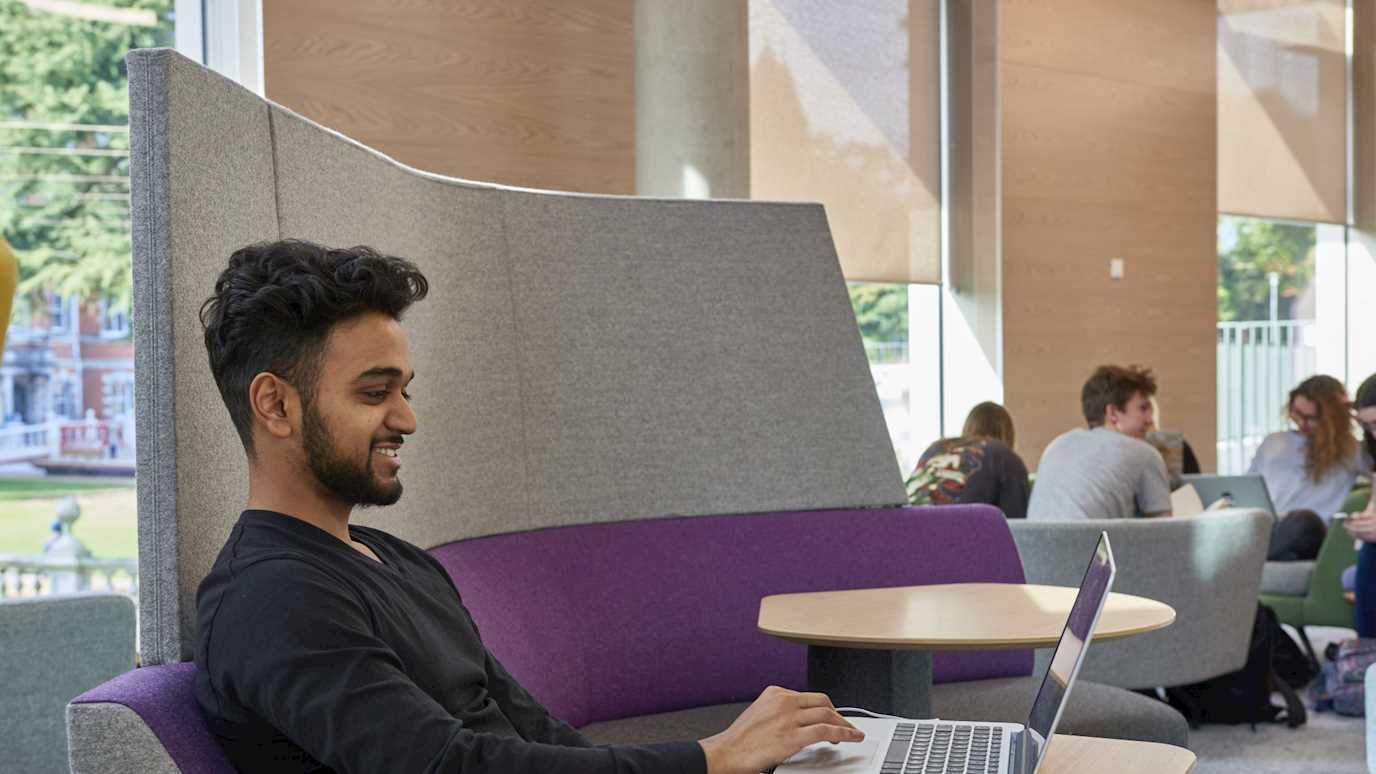Is higher education the right path for my child? Has it really changed that much since I went?
FAQs
What do other parents say?
Listen to other parents reflecting on their child’s university journey.
Why choose higher education?
There are many options available for school leavers; from going on to higher education, working, taking a gap year or doing an apprenticeship. As a parent or supporter advising your child on the best option for them can be tricky. What are the advantages of choosing university?
A pre-requisite for certain careers
Many careers, for example, teacher, engineer, architect, scientist, require a degree.
Great opportunities
Most institutions will give students the opportunity to study abroad or have an integrated work placement, meaning your child will be able to access exciting opportunities that will develop them as an individual and will also look good on their CV.
Opportunities outside of the lecture theatre
Societies, sports clubs and volunteering are an important part of university life. These activities give the student the chance to network with people from all over the world as well as from differing backgrounds. This is a great way to build confidence and independence which are transferable skills widely recognised by employers.
To study a subject that they love
The student can focus on a subject which they enjoy and which motivates them. Degree studies can last for between 3 and 6 years, and, if they are focussed, usually a high commitment to study will produce excellent results.
To improve career prospects
Gaining a degree will increase and improve career prospects as graduates are more likely to progress faster up the career ladder. A number of organisations will require an employee to have a degree before applying, so having a degree broadens work options.
Individuals with a degree are likely to be paid more
Research shows that graduates attract higher salaries than non-graduates. In addition data attests to the fact that those with a degree are more likely to be employed than those without.
To develop employable skills
A degree will allow your child to develop transferable skills such as presentation, communication, time management and problem solving. All of which enhance their appeal to potential employers.
The debt can be worth it
Whilst it can be intimidating, the debt is manageable and the overall benefits of gaining a degree outweigh the negatives.
Click here to view this information as a PDF.
How do school and university differ?
So many questions surround the transition from school to university that students may be understandably concerned about how they will manage and in turn that will worry you.
School offers a relatively protected environment, with a good support network of teachers and friends to keep a student on the right track. University on the other hand is new territory.
That initial realisation that they will be taking responsibility for themselves in everything they do, could come as a surprise. From waking up on time, attending classes, studying, cooking their own meals and managing their finances, your child will now be the governor of their own time and will quickly learn how to manage it effectively.
Organising their own finances can be a challenge but not one that is insurmountable. By teaching them how to prepare a basic budget and guiding them as to what is an essential rather than a nice-to-have will help your child get to grips with money matters.
Another difference which may feel unusual at first, is the way in which students will learn. There will be far less structured teaching and far more self-directed reading and research. Some students will initially struggle with this concept, but will adapt over time.
The actual method of teaching will also vary to the school environment. A student may be one of 150 others attending a lecture, or be part of a small group in a seminar, which is more informal and offers the opportunity to discuss and develop ideas. Tutorials, a one-to-one meeting with their tutor, can be commonplace. Active engagement in such activities is important to academic success, but it may not come easily to everyone. Students new to these teaching methods will soon find their voice and will no doubt benefit from this type of learning.
Meeting new people and finding a new group of friends may seem intimidating at first, but joining clubs and societies, seeking advice from second and third-year students and taking part in all that Welcome Week has to offer, will help your child to quickly acclimatise to university life. After all, they follow in the footsteps of thousands of other young people who were at one time also new to university. By embracing this different environment your child can experience all that university life has to offer.
What has changed over the years?
If you went to university you probably remember the long hours studying, the parties and the friends you made for life. Those aspects are still present today but there are some things about the university experience which are now different.
The World Wide Web
Almost all of the processes involved with applying to university take place completely online. The Universities and Colleges Admissions Service (UCAS) has operated undergraduate university admissions since 1992. Students complete an application form on UCAS, then apply and narrow their decisions down on UCAS Track. Similarly, students apply for their student loans on the official Government website, and usually will complete an online application form for university accommodation. The internet also has a lot to offer in terms of resources to make the process easier. Forums such as The Student Room allow students to share experiences and answer questions, MoneySavingExpert gives advice on student bank accounts and loans, and online league tables will help your child narrow down their university choices.
Choice
University expansion has meant that there are far more universities to choose from. There are over 150 Higher Education institutions in the UK and thousands more further afield. There are over 30,000 different courses on UCAS to choose from, meaning that there is a course to suit almost anyone. Nowadays, far more young people choose to pursue university, in fact in 2017 over 32% of 18 year olds in the UK entered higher education. Also, new types of courses, such as Degree Apprenticeships, 2 year degrees and courses with a Year in Industry mean there are different ways to achieve a degree. Deciding on what and where to study can be difficult and confusing. There are several websites to assist in the process including the National Student Survey (NSS) which collates student feedback about their university experience.
Costs
A big change in relation to higher education in recent years has been the introduction of tuition fees and an overhaul of the student finance system to replace grants with loans. Tuition fees charged by universities are currently set at a maximum of £9,250 per year with students being able to apply for loans to cover both tuition and maintenance. Universities recognise that choosing to enter higher education is a large financial undertaking, and aim to give students value for money through academic contact time, support services, opportunities to develop skills, and in-depth careers support.
Employability
The graduate job market is more competitive than ever. Accordingly, an important focus for students is how prepared they will be for life after university. Offering options such as taking a professional year in industry, work placements, vacation schemes and part time jobs means that universities are supporting their students to become more employable. The university careers service will provide assistance with job applications, mock assessment centres and interviews, networking events and CV building sessions.
Accommodation
University accommodation options and halls of residence are more varied and undoubtedly more luxurious than they were in the past. Students can choose from a twin self-catered room with a shared bathroom and kitchen, to an en-suite studio with double bed and flat screen TV. This breadth of choice means that there is an option to suit every budget.
So, what hasn’t changed?
University is still a life-changing experience, where students are able to mature, live independently and learn more about themselves. Many will discover career pathways that they didn’t know existed and meet people who will become their friends for life. University can open up opportunities that your child would otherwise be unable to access and provide the knowledge and support to allow them to achieve their ambitions.
























